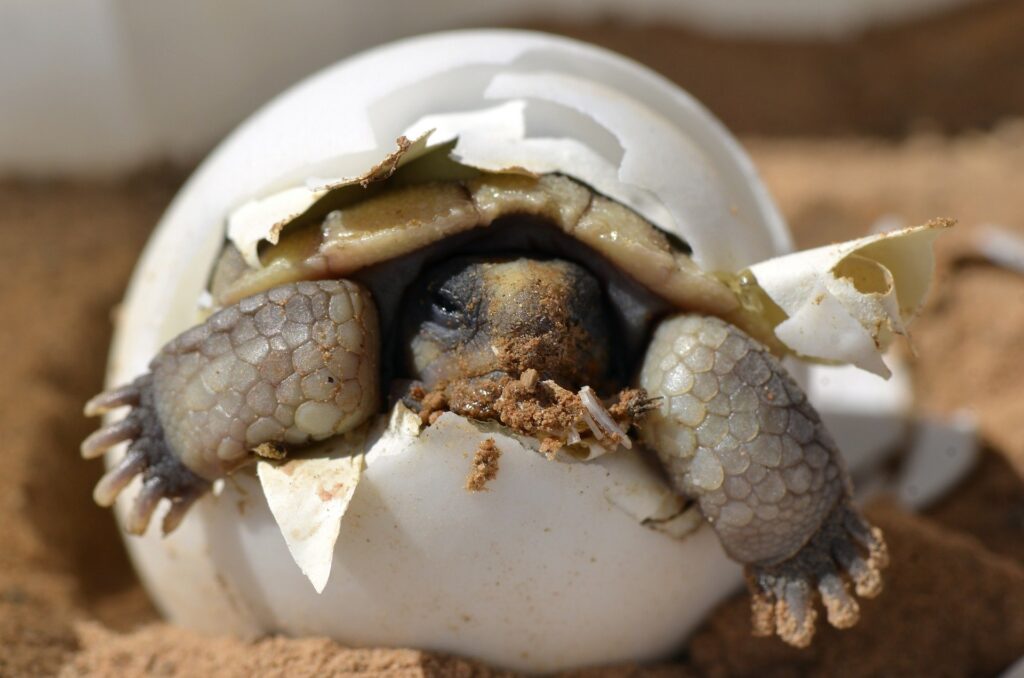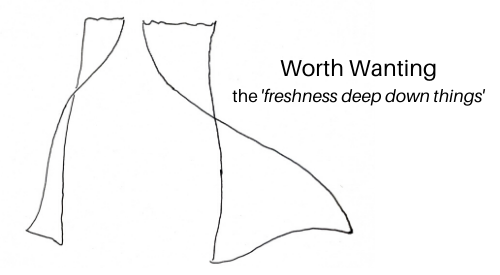
Once upon a time there was no chemistry; the universe was too hot for molecules. Once upon a time, there was no life; the planet was too hot for genetic molecules. Once upon a time, there was no mankind; our precursors hadn’t appeared. Chemistry, life, mankind are all emergent phenomena, products of prior conditions but with new properties all their own.
Transcendent freshness is not emergent. It didn’t come from anything. It never was not and never will not be. It acts always out of the pure love of livingness.
Mundane freshness is associated with springtime, youth and innocence, rest and revitalization, new beginnings, the clean and untrammeled. Our response to natural freshness around us and within us manifests in many of the same ways as transcendent freshness: an expanded sense of possibility, a stimulated curiosity, a liberated inventiveness, and an exuberance of energy.
Alas, natural freshness is dependent on prior conditions to exist, and it passes, is used up, grows old, moves on.The prefix re- frequently associated with this freshness emphasizes its cyclical character, here and gone, here and gone.
The world of mundane freshness is the world of nature, and that of human beings, their societies and civilizations, their processes and products. Where transcendent freshness manifests is in encounters, which overlap the mundane, so the two forms of freshness co-manifest and mingle.
The difference: mundane freshness arises from within the systems and cycles of the natural world, fragile and exhaustible as they are. Transcendent freshness arrives, is ever arriving, from beyond the natural world to woo mundane interactions into becoming encounters, each transcendent and with a fresh future forever.
Transcendent freshness lures us beyond the horizons of our knowledge and the limits of our constraints, clothes ordinary things with a kind of attractive glamour, makes unprecedented or unexpected things happen or come into being, and forges lasting connections between things around their mutual livingness, independent of considerations of cost or benefit.
Encounters as inherent and lasting units of value are the point of our existence, and each of them is also a ‘vote’ for the shape and composition of that ultimate consummation of creation, which is the ultimate agenda of transcendent freshness.
The drama of emergence–new combinations, new properties, new possibilities–is the joy of natural freshness, The drama of that consummation coming into being is the joy of transcendent freshness. It’s all good.
On another head:
Freshness (upper case F) is not the office of which freshness (lower case f) is the sole incumbent, as for instance, the office of the president of the United States which only ever has one occupant at a time.
Offices sometimes have power, but always have status, and even proximity to status is a form of power.
Freshness (f) is not about any power other than that of attraction, and that fresh-minted, occasion by occasion. Nor is freshness about status in any way. Freshness (f) is not an office-holder. Rather it is the pure love of livingness, as exhibited in encounters. Freshness (F) as an office with rituals and regalia, by contrast, is frozen or former freshness.
